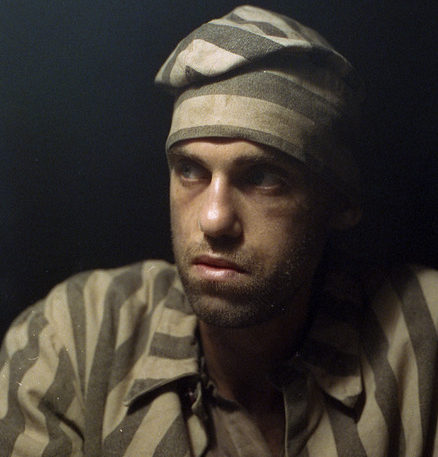
People feel like, Oh, this could never happen again, but everything can happen again if you won’t act against it. Unfortunately there are bad people in the world, and when you give them control, and you don’t act against them or speak against them, they have power to be bigger and bigger and do what they want. And then it can be too late. IDO SAMUEL
After conquering the Israeli market with roles in an impressive list of over thirty films, Ido Samuel moved to the United States to pursue his dream of breaking into U.S. film. His new short, “Dirty Bomb,” tells the story of Holocaust heroes who sacrificed their lives to sabotage the V2 bomb, causing it to misfire during World War II. “Dirty Bomb” has already reached critical acclaim in Cannes, receiving a standing ovation at its screening at the Cannes Film Festival. The film also recently screened at Dances With Films Festival in Los Angeles, and competed at the Madrid International Film Festival, where Ido was nominated for Best Leading Actor in a Short Film. We spoke with Ido by phone about the film’s recent success, how he prepared for his breakout role into U.S. film, and the difference between the Israeli and U.S. film market.
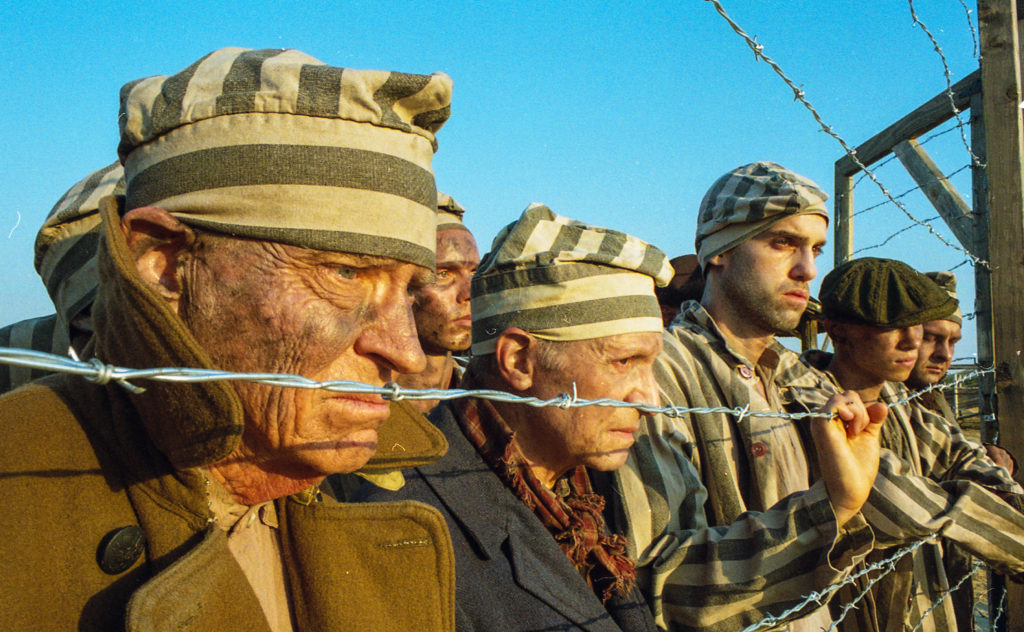
Hannah: “Dirty Bomb” received a standing ovation at Cannes Film Festival. What do you think it is about the film the resonates most with people in 2018?
Ido: I think, first of all, it’s a story of the Holocaust that I’d never heard before, and a lot of people hadn’t heard about before. Being from Israel, we’d hear stories from Holocaust survivors every year on Holocaust Day. Every time you’d hear stories that shocked you even more. You’d think you’d already heard so many stories, but then when the director told me the story of “Dirty Bomb,” I’d never heard of it before. I’m sure a lot of people didn’t know about it, and didn’t know about the heroes that sacrificed their lives to save thousands of soldiers that they’d never met before. So I think just the fact that nowadays, people really admire people that sacrifice themselves to benefit other people and to help other people. I think it’s really resonating now with what I feel people really want to see happening again, to see people thinking about other people.
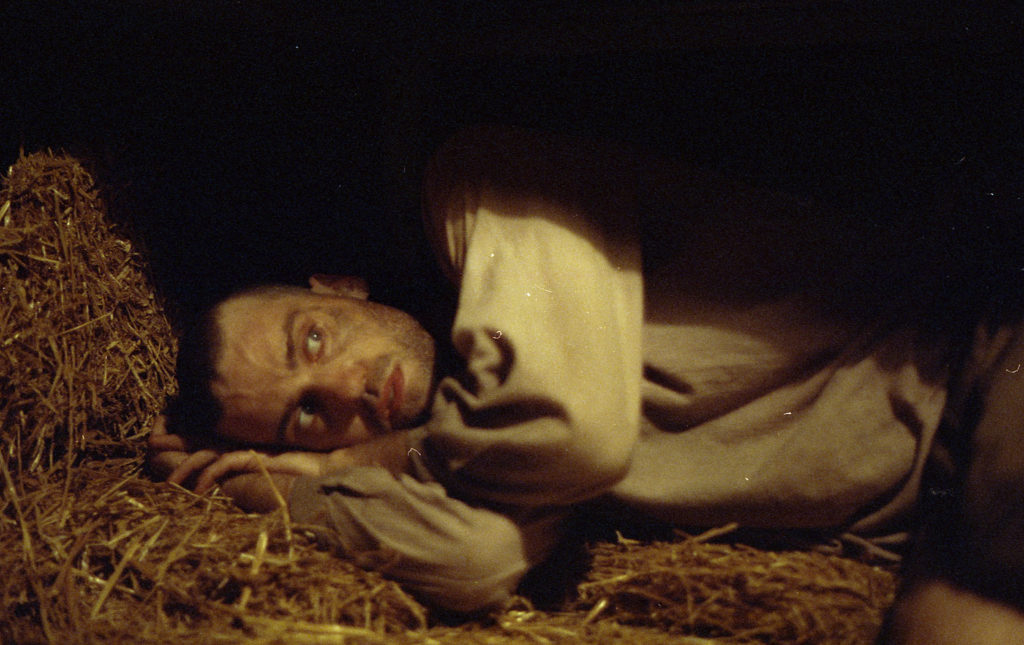
Cailin: You just mentioned that you didn’t know about these heroes—obviously this story goes that they gave up their own lives to save thousands of other people by sabotaging the bombs they were supposed to be making—until the director, Valerie, told you about them. And then you started researching them online, I read in an interview. Is there anything that you learned when you were doing the research for the film that you feel surprised you the most?
Ido: Yeah, and I keep learning more about it, even after we shot it. I just learned that Wernher von Braun was the German inventor of the V2 bomb, who later on after the war came to the U.S. [and became] one of the biggest influencers in creating NASA, and creating the first shuttle to the moon. And he was the creator of the V2 bomb, the bomb that Hitler tried to help win the war with. I also just found out that von Braun interviewed each of the prisoners to see that they were really fit to help them build the bomb. I’d never heard about the 200 people who sacrificed their lives to make the bomb, and about the underground camp they built to build the bombs in. Each prisoner had a number that was on the bomb that they worked on, and every time a bomb didn’t explode, they knew exactly which prisoner worked on the bomb, and they hung them and showed the other prisoners so they’d know, This is what would happen to you if you’re gonna sabotage the bomb or you’re gonna interfere with building the bomb. And more prisoners kept on sabotaging the bomb even though they knew they’re gonna sacrifice their life … They didn’t know where the bomb’s gonna go, they didn’t know what it’s gonna be used for, but they saved thousands of American soldiers’ lives in the battlefield. I never knew that story before. And I just found out also that the camp where they used to build the bombs still exists in Germany, called the Dora camp, and they’ve preserved it almost exactly the way it used to be. So, I would hope, if we plan to do a continued film of the story, we’d shoot in the real camp.
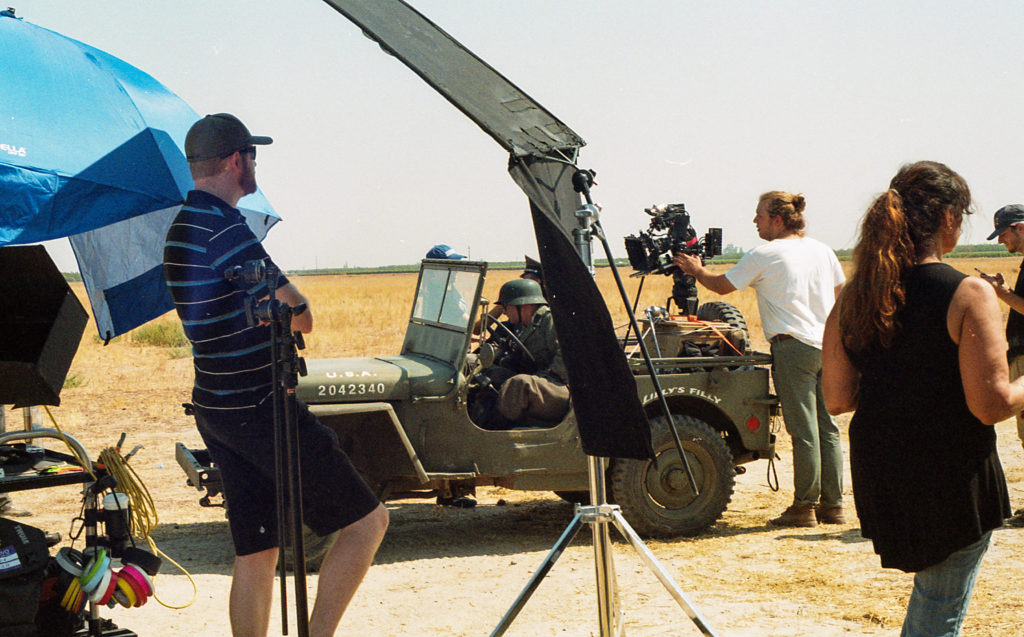
Cailin: I’d imagine that just knowing the story, and having done as much research as you did, would help you channel the emotion of playing your character Aharon, but is there anything else that you did before you’d film a scene to really get into the head of somebody going through a situation like that, and making such a sacrifice?
Ido: Yeah. I had the honor, actually. . . a few weeks before we shot the film, I met with a Holocaust survivor here in LA, from actually the same camp that the story takes place [in] … He let me ask him those tough questions that I needed to solve for my character and for myself. ‘Cause, I think to myself, No one’s ever in a situation like that, when most of my family would have been executed, and I’d be in the lowest bed sitting with the worst kind of people. I don’t know what would have kept me going. I asked him, and he was open to answer a lot of my tough questions. For me, I don’t know if I would be able to just keep on living in this kind of camp. I asked him, ‘What kept you going?’, and he told me, first of all, the feeling of hunger. It’s the most powerful feeling they had, ‘cause they only ate like once a week, once every two weeks, and they were just thinking about the hunger. The physicality of that was just so powerful, that that’s mainly what they thought about, because they wanted to survive—that survival mode. And the for the survivor, his name is Frank Schiller, he told me his brother was in the same camp, but in a different job position than him. So he got fed more than his brother—like once or twice a week. And he used to keep a piece of his bread to give to his brother … I especially [felt ready for the shoot] after talking to him, and seeing his emotion, and how much he wanted to live for after everything he’d been through. When he told me his personal stories, you can see the emotion, even though it’s been more than 60, 70 years after, he still has the same raw emotion of what he’d been through. So two weeks before the shoot I tried to eat very, very little—only, like, vegetables and water. And I know it’s not very recommended to do, but I tried to have a little bit of the swing of the hunger. When we started to shoot, because of the production design and the costumes, everything looked so real that it was easy for me to just be in the moment … so everything I researched, everything I read, everything that I heard from Frank. . . everything came to life. It was very real for me, a very powerful experience.
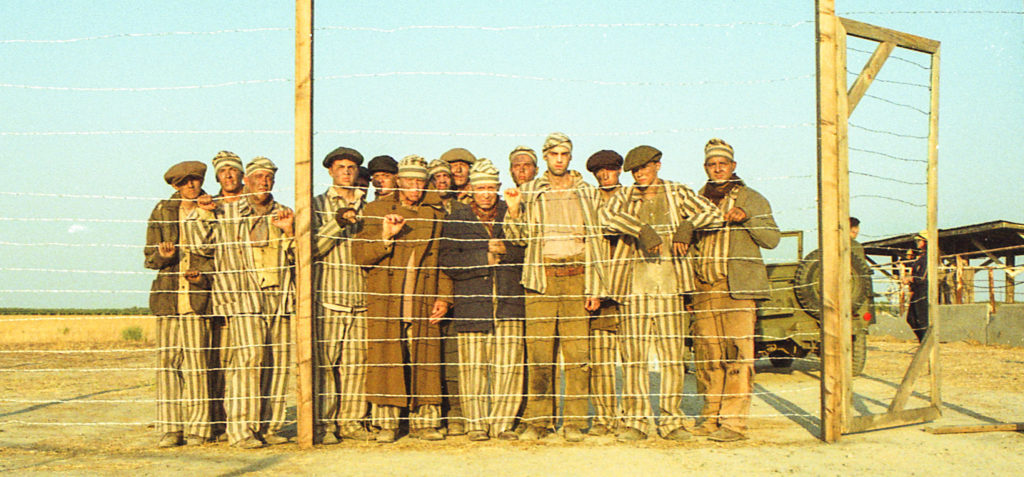
Hannah: You can’t ask for better preparation for the film than having the opportunity to speak with a survivor. That’s amazing.
Cailin: I saw an interview that I thought was interesting. Valerie made a comment – she said, speaking of the men, that they were heroes because we didn’t know who they were. I wonder what your reaction to that quote is, and what you think she means by that.
Ido: I think, personally for me, there are so many people that do stuff and don’t show it off, and don’t [say], “Look here, we did this, we did this.” They’re heroes because they saved thousands of lives … They saved so many lives and no one knows about them. I never knew about them. Most of the people never heard about them before. And to sacrifice your own personal life to save others’ lives that you’ve never met before, that you have no way of knowing who you are saving—I think this is the definition of a hero, someone like that. They could have easily helped build the bombs, and get food, and just keep going and hope for something better, but they didn’t want to help evil succeed. They didn’t want to compromise their own beliefs and their own values in order to let other people win. That’s a very heroic thing to do.
Hannah: Absolutely. And they did it for the sake of saving lives and not for recognition from others. Now, after a successful career in the Israeli film market, you moved to the US to pursue your dream of acting in U.S. film – and then I read that you immediately booked a lead role in the prestigious short film “Bed-Dod Sheli,” and then “Dirty Bomb.” Do you notice a significant difference in the US and Israeli film market?
Ido: First of all the budget. The USA has a bigger budget, and they can do bigger stuff with a lot of locations. In Israel the budget is not so high, but I feel that that’s why the stories in the scripts in Israel are so good, and the characters so developed. We know in Israel we don’t have enough money to do a lot of visual effects and big stuff, so we need the stories to be very good and very original.
Hannah: George Santayana said, “Those who can’t remember the past are condemned to repeat it.” Do you feel that that message is valid in the climate of what’s been going on lately? I feel like this movie has those undertones.
Ido: Oh, definitely. Definitely. ‘Cause, you know, nowadays people just prefer to be safe … And that’s what helped bad guys to win [in the past], because no one wanted to stand against them. All the other countries just preferred to be quiet for so long, and preferred to look the other way, and preferred to not believe that this kind of stuff really happened, even though they had proof that something had happened, and it came closer to their border. And a lot of the stuff in the past would have been prevented if people would have acted sooner. . . if people in the same country would say, like, “No! We are not allowing this kind of racism to go on. We don’t want to help these kind of people to be in the leadership. So, I feel nowadays people feel that racism is back, and racism is again a tool for people to be in control and to help get votes. I feel like people feel like they need to speak out now more, and they know if they’ll be quiet, stuff can get worse, and worse, and worse. People feel like, Oh, this could never happen again, but everything can happen again if you won’t act against it. Unfortunately there are bad people in the world, and when you give them control, and you don’t act against them or speak against them, they have power to be bigger and bigger and do what they want. And then it can be too late. I think that’s why people nowadays really need to hear stories like that. I hear people nowadays denying the Holocaust. They say the Holocaust never happened. And unfortunately, a lot of the Holocaust survivors who told their stories, most of them are in their nineties, and there are few left. So I feel like that’s why it’s important to tell stories about the Holocaust. And these days the young generation learns a lot just from watching TV or watching film. I think film is a very big tool to teach the young generation about what happened, and how we can still prevent stuff like that from happening.
“Dirty Bomb” will be released in November. For more about the film, visit its official website.
